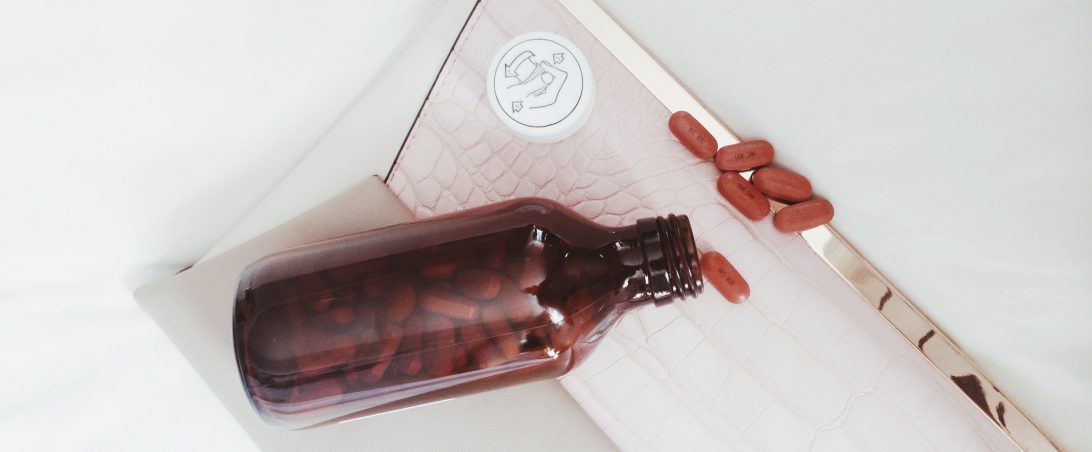For so much of my time with Crohn’s Disease, I’ve been obsessed with immumnosuppresives. Initially scared of them, followed by a course of them, to finally coming off them – these little buggers are the one of the most popular things that I get asked about! And I get it – those little leaflets you receive telling you all the pros and cons and medical jargon are hell’a confusing!
Now, although I am not a trained professional and therefore cannot recommend any medical treatment for anyone (your body is your body, yo) what I can do is share some of my thoughts, experiences and opinions – and you can take it from there…
- Yes, Hair Loss is a Thing
No medicine is without it’s side effects – if you read about the potential risks of taking paracetamol it puts things into perspective of how you need to always read the labels but to not assume that every single negative is applicable to you. Unfortunately, hair loss is quite a common side effect of Azathioprine, and it is something that I really noticed during my time on the treatment. Whilst I’ve always had very thin/fine hair, I began to see lots of it coming out in the shower and every time I would brush my hair. This left me super self-conscious and with ratty, dry hair that I was too embarrassed to leave down. I also had to stop colouring my hair, for risk more of it would break off, and decided to get it cut shorted to try and give it the appearance of being thicker and fuller. - You Do Take Longer To Get Over Sickness
Another thing that became very noticeable to me with Azathioprine is that any kind of small bug or infection I got, took ages to get over. Immunosuppressants suppress the overactivity of your immune system, thus dampening it slightly. Although this is not life threatening (obviously, although I cannot confirm this?!) it did mean for me that things like a throat infection ended up lasting for 3 months, as my body struggled to fight off infections as efficiently as it did before. - It Will Give You Back a New Lease of Life
What I loved about Azathioprine is the fact that during my time on the drug, I was flare-up free. My ‘stomach’ side effects from my Crohn’s Disease seemed to be put completely under control and I was able to live a relatively ‘normal’ life without having to constantly put my IBD first. For me, this was worth a lot of the negative side effects, but not everyone responds so well. - You Are Monitored Closely
Probably the safest and ‘in control’ I have ever felt with my IBD is when I was on Azathioprine. Towards the start of your treatment, you are asked into the Hospital every 2 weeks for a chat with your pharmacist to review how you are getting on, and you are also asked to complete blood tests on every visit so that they can check your levels. They look for inflammation markers, alongside things like cortisol and TPMT, that can go up on medication like immunosuppressants. The initial dosage o the medication that you are given is calculated on factors such as your weight/height but then this is altered according to how your body responds – eg. initially I was put on 125mg/daily and then was very quickly dropped to 75mg/daily as the former was too intense. For me, it was so nice to feel like I was being closely watched and that if there was anything wrong with the treatment or my IBD, then it would be acted upon quickly. - Nausea is Common
One of the things that I often forget about my time on Azathioprine is how sick it made me feel at the start. For the first couple of weeks, I felt on/off sick (almost similar to the feeling of motion sickness) and this was quite unpleasant. However, this does not last long for most people and will hopefully pass once your body has adjusted. For anything you are concerned about, remember to consult your GP immediately. - Avoid Direct Sunlight & Wear SPF
This one is so important! When my hospital consultant first wanted to start the conversation with me about Azathioprine, he took one look at the colour of my skin and asked me; ‘Do you use sunbeds?’ The answer was no, I’m just a fan of tan from a bottle, but this was truly a concern of his as immunosuppressants make you much more susceptible to developing some forms of skin cancer. You should not use sunbeds anyway, people, but if you are a fan of the sun, make sure that you are always wearing SPF and avoid direct sunlight during peak times. Seriously. - It Doesn’t Work Immediately
Azathioprine is not like corticosteroids in the sense that you do not necessarily notice the effect of them quickly. It can typically take around 3 weeks (minimum) for you to start to be able to respond to immunosuppressants, so your doctor may recommend that you have a ‘crossover’ period of medications to try and reduce the risk of having a flare up. This needs to be considered in case you decide to come off Azathioprine, as it can take many weeks for the drug to be out of your system completely. - Always Speak to Your Consultant/IBD Nurse
If you notice any changes in your body or your symptoms, it is really important that you tell your GP, consultant or nurse ASAP – especially if you notice a rash.
For more information on Azathioprine or Mercaptopurine, please read the leaflet by Crohn’s and Colitis UK or speak to your GP.

